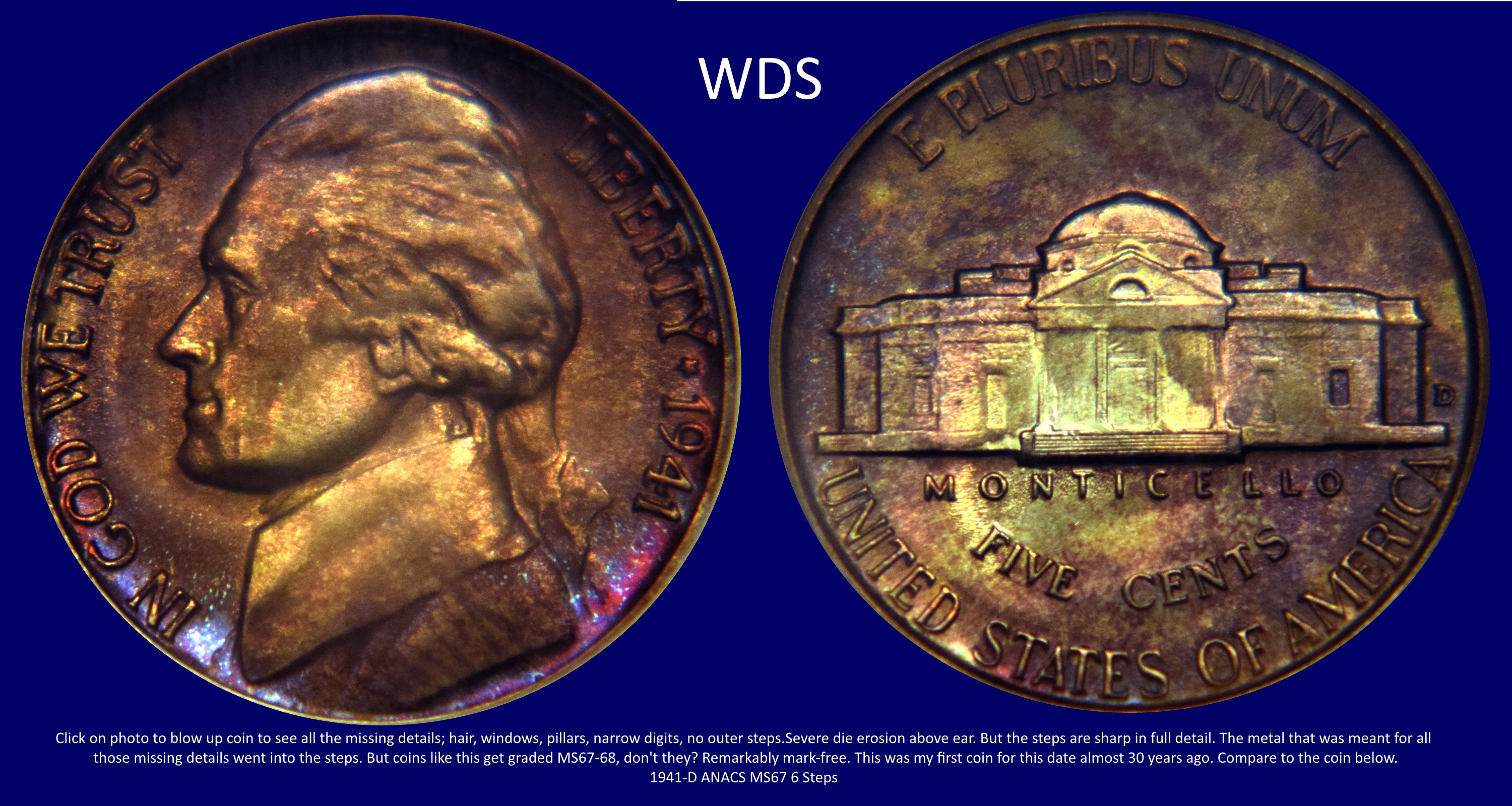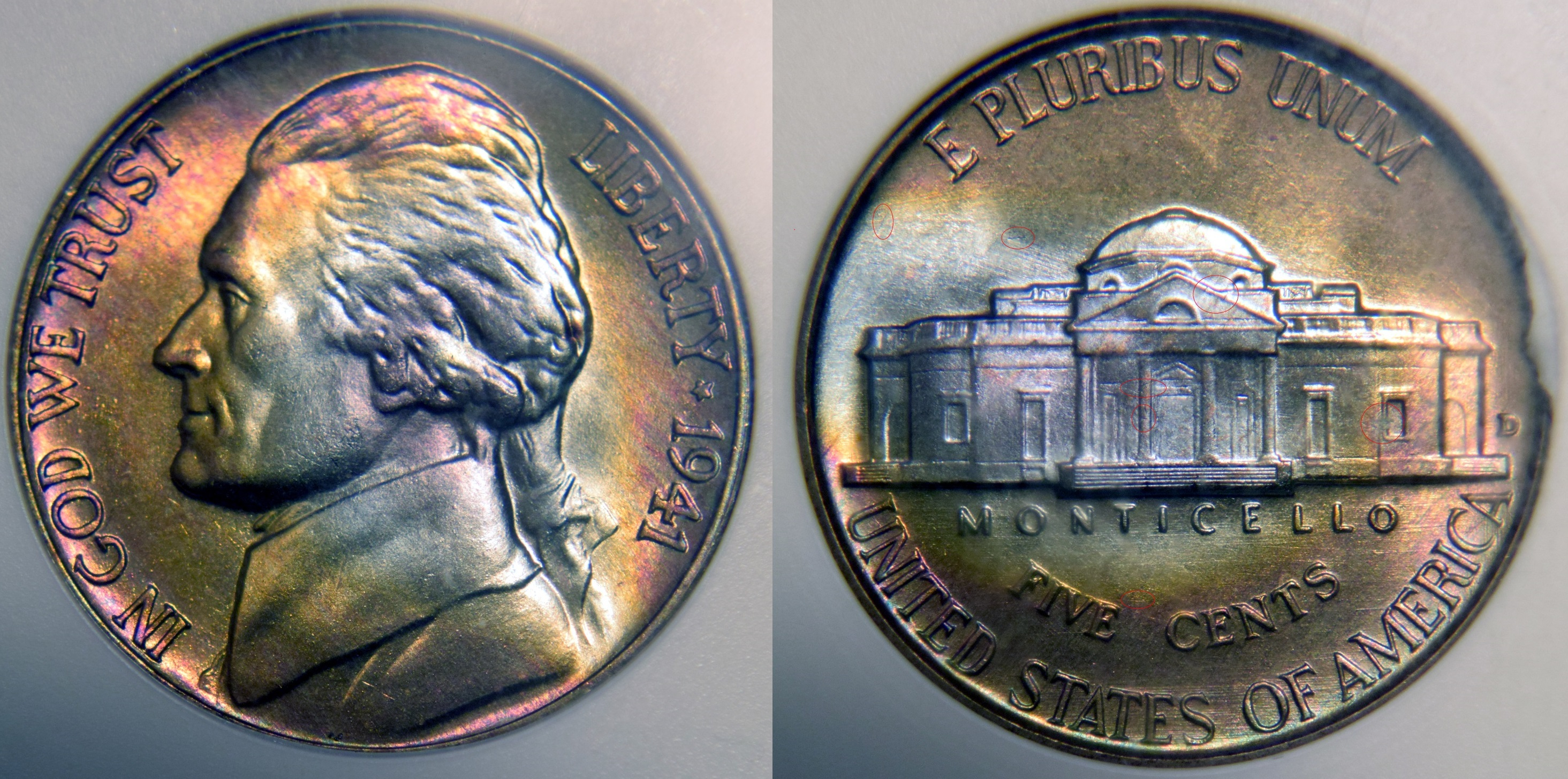What is important about coin grading?
 HJP
Posts: 423 ✭✭✭
HJP
Posts: 423 ✭✭✭
I know, I'm trying to elicit a response to a subject which has strong opinions.
The purpose of my question is to learn if the decision making process I use is similar to what other collectors of metallic (and other types) of art use.
No bias or slant for or against graded coins. I seek objectivity and knowledge - not divisiveness, anger, jealousy or remorse.
I'll start with what I believe is the single most important reason for any object of art to be "Graded" (I.e. evaluated by experienced & trusted people and assigned a numerical designation of quality based on an agreed upon set of standards - easy right?)
1) Authentication.
2)
1
Comments
2) Indication of condition/state of preservation
3) Indication of value
I’m taking it as a given that your “1) Authentication” includes identification.
Mark Feld* of Heritage Auctions*Unless otherwise noted, my posts here represent my personal opinions.
value
https://www.pcgs.com/setregistry/quarters/washington-quarters-major-sets/washington-quarters-date-set-circulation-strikes-1932-present/publishedset/209923
https://www.pcgs.com/setregistry/quarters/washington-quarters-major-sets/washington-quarters-date-set-circulation-strikes-1932-present/album/209923
Indeed I assume identification is part of the authentication process.
2) Condition / state of preservation: do you mean "grade"?
3) Value: an indication of value provided by a grading company? Please elaborate.
For 2) - I mean grade, whether it be a straight grade or a details grade with stated reason(s) for such.
For 3) - Value follows, at least somewhat, from condition/grade.
Mark Feld* of Heritage Auctions*Unless otherwise noted, my posts here represent my personal opinions.
Ok, I took the word "value" as used by other posters out of context.
In terms of "value" - how do we quantify the "grade" (or opinion of others) as to what the "price" should be?
We can't.
"Value" (meaning what to whom?) comes into play when we want to sell or insure or rationalize what we paid for our coins, banknotes, paintings...etc. Someone will always tell us their opinion of what the "value" is of something want to sell.
4) Protection - Entombed in a slab.
5) Buyer Confidence
Aye, Protection is a key reason to encapsulate anything that has sensitive surfaces...etc.
However, there are some problems with how we entomb our objects d'art (coins in particular). More on that later, maybe...
You bring up fair points regarding value. I should have made my “3) Indication of value” much more nebulous.😉
Mark Feld* of Heritage Auctions*Unless otherwise noted, my posts here represent my personal opinions.
5) Buyer confidence
Oh yes, we must instill confidence in the buyers of our wares. This is a key subject area - that needs to be elaborated on...
Consistency.
BST transactions: dbldie55, jayPem, 78saen, UltraHighRelief, nibanny, liefgold, FallGuy, lkeigwin, mbogoman, Sandman70gt, keets, joeykoins, ianrussell (@GC), EagleEye, ThePennyLady, GRANDAM, Ilikecolor, Gluggo, okiedude, Voyageur, LJenkins11, fastfreddie, ms70, pursuitofliberty, ZoidMeister,Coin Finder, GotTheBug, edwardjulio, Coinnmore, Nickpatton, Namvet69,...
6) Consistency: in terms of which metrics?
Accuracy of grade?
Grades between different items (the same type or different)?
Please elaborate
Consistent standards that are in-line with perhaps the early part of the century.
I said “consistent standards” first, but then I though about the third world grading complies that were consistently inaccurate, and I knew I had to revise my statement.
Objectivity, based on third party opinion.
This is because if it is not slabbed, very few will consider what grade you think it is.
7) Inclusion in registries. This is important for some and meaningless for others.
Oh, and most can't grade coins themselves.
Yes-this.
No importance whatsoever on rarities. While you may want a higher grade, no one is going to turn down a one of a kind coin because it’s a low grade example.
Grading coins is important to those seeking status or pricing (be it buying or selling)... I will qualify that to some extent, since grading by reputable TPG's include authentication.... so that is an important value (IMO)... other than that, the grade is an educated opinion, since there are no standards. Yes, the opinion of experts is of value, however, as shown here, these opinions are disputed and discussed at length. Cheers, RickO
How about “to add value”?
What is important about coin grading?
Getting it "right."
For your heirs.
The better you can grade coins the better off you will be in coins. Any one can buy a coin but to buy one at the right price is the key.
Hoard the keys.
I agree that being able to evaluate the surfaces of a coin / banknote / sculpture / object of art - is important.
Placing a “grade” on anything is subjective. Being able to see value in the quality / rarity / beauty of an object is really what we are getting at....
Well, we can't know what "right" is until we know the point of coin grading. If authentication is the sole purpose, then "right" means authentication. If authentication means (as this thread suggests): authentication, grading, and environmental protection. Then getting it "right" includes the plastic slab itself and not just the authentication/grading part of it.
All comments reflect the opinion of the author, even when irrefutably accurate.
Yes! Getting it right - is becoming more relevant.
The purpose of seeking the opinions of others is to find validation for our investment.
HJP
I will summarize the 7-8 points of interest, when considering the importance / relevance of grading - using numeric descriptors
Rarity does not always equal value. If nobody wants it - what is its value?
Boy, isn’t that the truth. We all wish that what we like / desire / crave...etc. will be regarded in such esteem - when we sell
CLCT
art is visceral. We can do better in how we display and store our art.
While they are usually done at the same time by the same person, I consider authentication and grading to be two different operations or processes.
Worry is the interest you pay on a debt you may not owe.
"Paper money eventually returns to its intrinsic value---zero."----Voltaire
"Everything you say should be true, but not everything true should be said."----Voltaire
My dog is better than your dog syndrome.
``https://ebay.us/m/KxolR5
Legitimacy. Next topic
What is important about coin grading? You ask?
The comforting lack of controversy! That's what!
Standards are, by definition, consistent and never change. There have never been grading standards, only grading guidelines.
See http://www.doubledimes.com for a free online reference for US twenty-cent pieces
It may be good to keep in mind that from the standpoint of a grading company, rather than a collector or dealer, it’s simply an important profit center.
Beyond permanently protecting a coin it's actual value has been established.
Established By whom?? By a TPG? it is only an opinion a TPG offers. very seldom, but with very few exceptions, does a TPG guarantee that now automatically established Value by the TPG in accordance with the Sheldon Scale and the prices attached to that scale.
Another TPG might evaluate that exact very same coin one grade lower ... or higher...
Now, whom do you believe?
Remember, anyone can be a TPG.. and we all are to a point.
Unless there is a solid norm established about grades, there will always arguments.
Not trying to stir up controversy (at this time).
What’s important to me is probably not what’s important to you. And that’s ok.
Finding out what is important to us “collectors” - is what I’m after.
Opinions are welcome. Well informed, educational and interesting ones, all the more so!
Confused? Now I'm also confused. Authenticating a coin is not the same as grading it. They are two completely different things.
Most things can be broken down to their simplest parts. Unless we learn to do this in discussions, confusion will reign more than it does now.
Keep it simple. Forget all the factors that have evolved over time to introduce subjective variables and complicate a fairly simple process - assigning a "technical" grade to a coin.
In the beginning (very distant past), grading became necessary to describe a coin's condition of preservation to someone who could not see it. That's all it was. That way folks could compare their collections. Back then, a hundred different grades, stars, price guides, etc. didn't exist to determine the same thing!
Watch two knowledgeable dealers transacting the purchase of a raw coin. 99% of the time the coin's grade NEVER comes up. It is not necessary. They both can see the coin. They both know its actual/real/"right" grade.
Learning how to do it for ones self.
My War Nickels https://www.pcgs.com/setregistry/nickels/jefferson-nickels-specialty-sets/jefferson-nickels-fs-basic-war-set-circulation-strikes-1942-1945/publishedset/94452
"Which coin is the better coin?" has always been the question for true collectors seeking collector coins. Take your time with your answer for you have/had a lifetime to figure it out. And along the way, you have always been able to find buyers for those coins you gradually rejected because you became wiser.......buyers who are not as far along as you are in your journey/quest for the optimum of collector coins.


My first 1941-D almost 30 years ago. And the Registry is chock-full of coins like this poorly struck WDS example.
How long has it taken you to decide which is the better coin? For some, for years, right before our very eyes..... I'm just not all that confident anymore that they will ever get there, get it figured out......unless, of course, they really can't find better coins. Imagine this......just how rare are fully detailed Jefferson nickels?
Leo
The more qualities observed in a coin, the more desirable that coin becomes!
My Jefferson Nickel Collection
Ok, so a summary of "what is important about coin grading", as surmised from the input of the posters on this message board (edited as per my preferences / bias):
1) Authentication
Defined as: Identification and verification of a coin / banknote / painting...
Must be done by people who are, or can convince us they are, qualified. (Major qualifier - This is a separate subject.)
2) Grade
Defined as: The numerical designation (as per Dr. Sheldon) of a coins condition, on a scale of 1 - 70.
The start of some controversy, begins here.
3) Value
Still not sure how to quantify the relative or absolute (ha-ha) value of any work of art. Graded coins (or Graded anything) would like to be a commodity - but they are not.
The other items mentioned in this thread have some relevance, but most will fall under the category of "value".
I guess an exception is graded bullion. Graded bullion is and always will be treated as a commodity - because it is.
Art is a poor comparison for grading - every painting is unique, and no one will ever not bid on a Rembrandt because it has a tear in the corner of the canvas.
Point taken. The "art" which I am most interested in is made to be reproduced - either metallic or paper.
Not that any form of art can't fit his bill...